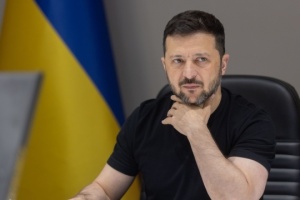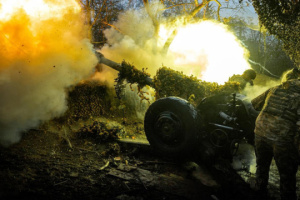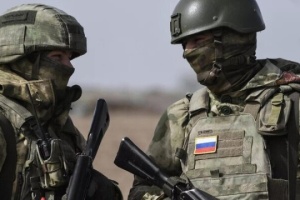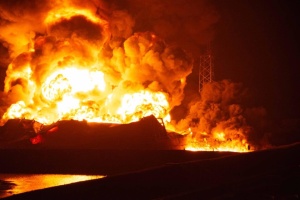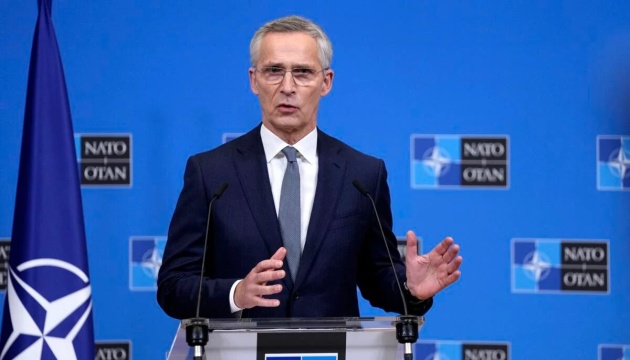
Improving NATO's nuclear deterrence system best response to Russia's nuclear rhetoric - Stoltenberg
This was stated by NATO Secretary General Jens Stoltenberg in Brussels on Wednesday during a press conference ahead of the defense ministerial, an Ukrinform correspondent reported.
"What we have seen over the last years or months is a dangerous nuclear rhetoric from the Russian side. We have seen that Russia has announced that they have deployed nuclear weapons to Belarus and we have also seen some more exercises, nuclear exercises from the Russian side. We also have to bear in mind that we don't only face nuclear challenges from Russia, but also from China, which is now heavily modernizing their nuclear capabilities. And we should expect to have large number of nuclear missiles, much higher than today, within a few years," Jens Stoltenberg said.
He noted that NATO defense ministers, while in Brussels, will hold a meeting of the Nuclear Planning Group to discuss the ongoing adaptation of the Alliance's nuclear capabilities to the current security environment.
Jens Stoltenberg emphasized that NATO's nuclear deterrence system is a guarantee of its security and the main instrument of deterrence and defense. This system of so-called "nuclear sharing" has been in place for years, with the United States having its nuclear weapons deployed in Europe and allies providing carrier planes, storage facilities, command structures, and other support to ensure an effective and secure nuclear deterrent.
Currently, Stoltenberg said, the U.S. is modernizing its nuclear weapons in Europe, and allies are switching from using F-16 fighter jets to aerial platforms based on modern F-35s to deliver these weapons.
"We have made significant progress in this adaptation: in June, the first F-35 fighter jets were declared ready by the Netherlands for NATO’s nuclear mission. And the U.S. is modernizing its nuclear weapons in Europe. As the challenges evolve, NATO’s nuclear mission remains the same: to preserve peace, prevent coercion, and deter aggression.," the NATO leader emphasized.
Jens Stoltenberg recalled that, in addition to nuclear threats coming Russia and China, there is also the nuclear program being run by North Korea and corresponding efforts on the part of Iran. To this end, NATO must communicate clearly that the Alliance's nuclear deterrent system is modern, reliable, effective, safe, and capable of deterring any aggressor.
As reported earlier, a two-day NATO defense ministerial kicks its work in Brussels on Thursday. On Day 1, the ministers will take part in the Ukraine Defense Contact Group (Ramstein) and a meeting of the Ukraine-NATO Council with the participation of Ukraine’s Minister of Defense, Rustem Umerov.

